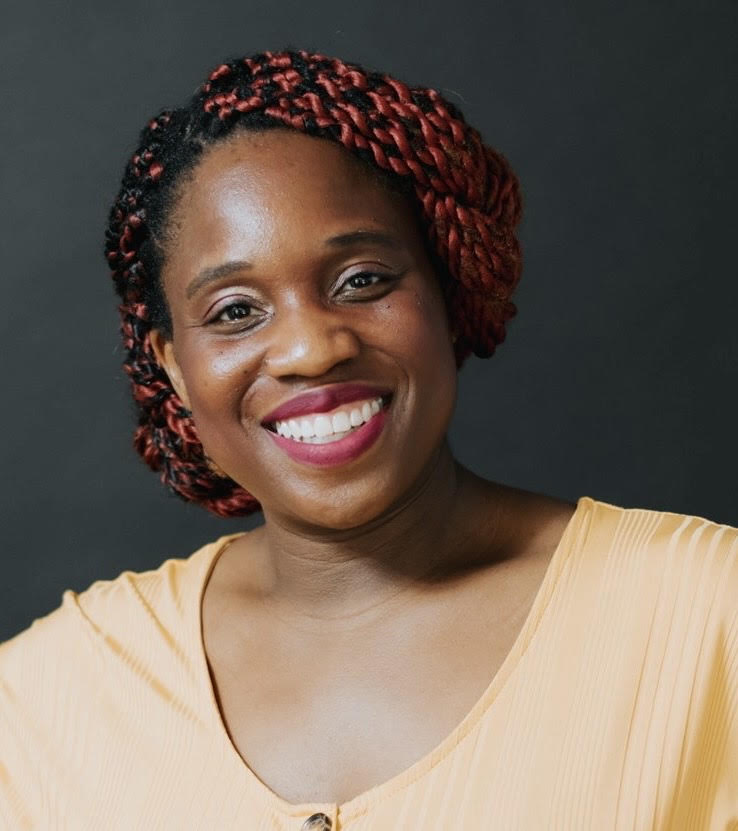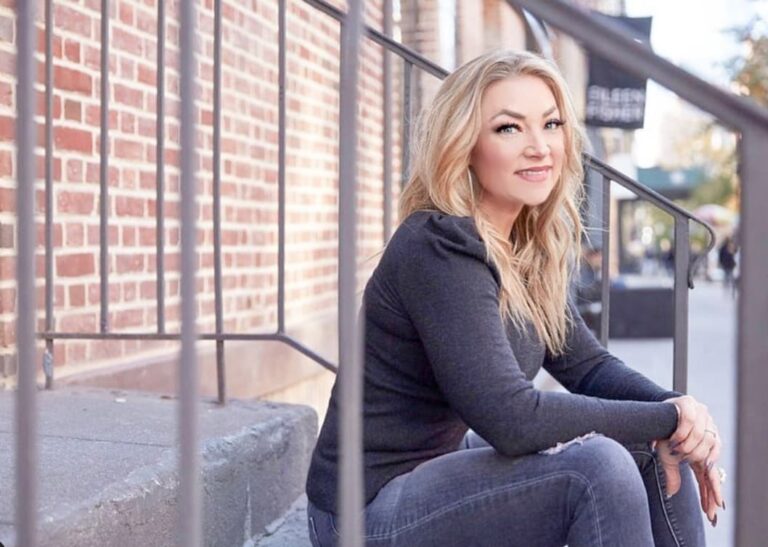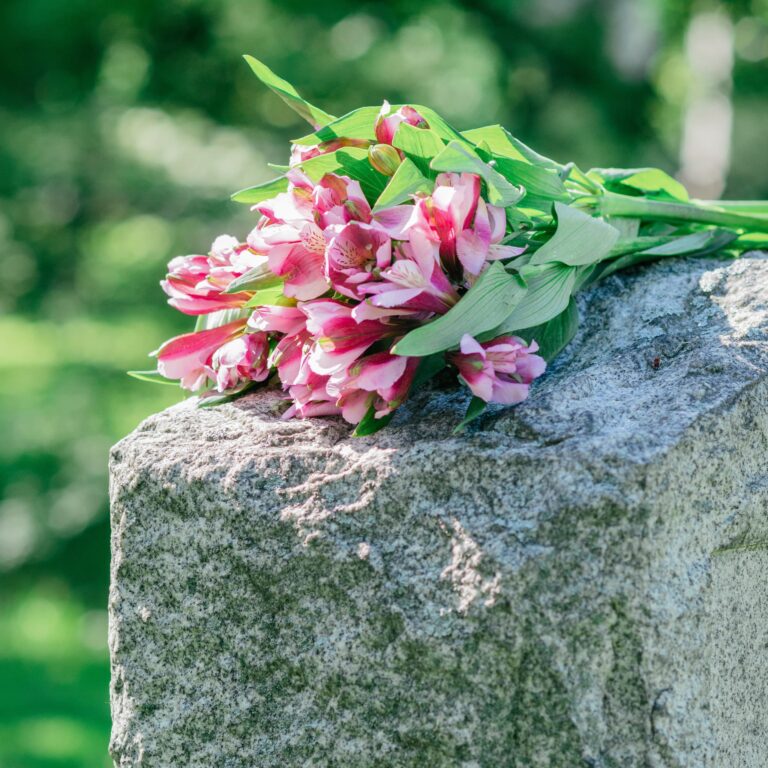Coping with Grief to Widow Coach: Petra Gordon’s Inspirational Journey
In today’s episode, I’m joined by widow coach Petra Gordon, a motivational speaker, author, fellow widow, and life coach. Petra shares her inspiring journey of coping with sudden loss, finding strength in her faith, and discovering her purpose after becoming a widow.
Petra reveals the profound impact of sudden widowhood on her life and how she navigated the overwhelming emotions that followed. She also discusses her best widow coping mechanisms including the importance of finding peace in solitude and leaning on her faith.
Key Topics in this episode include:
- Coping with the sudden loss of her husband just before Christmas in 2018
- Exploring how faith can coexist with adversity and challenges in life
- Becoming a certified life coach and her passion for serving widows
Get ready to be uplifted and inspired as Petra discovers the transformative power of resilience and the joy of serving others on this incredible path of self-discovery.
Listen to the Full Episode
Links + Resources From This Episode
- Petra’s book Faith in the Fire: A Story Of Resilience: Turning Tragedy Into Triumph
- Petra’s website
- Petra on Instagram and Facebook
“Being able to really connect with other women who get it, who understand, and who see you is a powerful thing.”
Episode Transcript
Jen: Welcome back, listeners. You are in for a treat today. Today on the Widow Squad podcast, I am joined by our special guest, Petra Gordon.
Petra is a motivational speaker, author, fellow widow, and life coach.
So welcome, Petra, today.
Petra: Thank you so much, Jen. So excited to be here with you today.
Coping with Sudden Loss
Jen: I am so excited to talk to you, and I just want to kind of jump right in. I just wanted you to tell us a little bit about your story and how you became a widow.
Petra: Absolutely. So in 2018, it was December 16, just a week or so before Christmas. I left my house for maybe an hour and when I came back, I found my husband in his office unresponsive. I mean, he’s had some health issues, but never did I think it would result in death. I thought, you know what, for sure, it’s going to be okay. Call the paramedics, do CPR, it’s going to be fine. They did everything they could to resuscitate him, but we lost him right there in the home. He was 42, I was 38. And it was sudden, it was unexpected. None of us saw this coming. And that’s literally when my whole world got turned upside down.
Jen: You come home, you find him. And at that point, you’re 38, he was only 42. What did you find yourself kind of leaning into in those first few weeks, maybe first few months? In the Widow Squad, we’re always talking about coping strategies and coping mechanisms. You were dealing with this sudden loss which is very traumatizing. Can you tell us what helped you get through, what helped you cope? And was there something that you really leaned into that helped you the most in those first few weeks and months?
Petra: Right. It might surprise you, some of the things that helped me, because I would say for anyone that’s going through this experience, how you cope and how you work through the grief will vary.
For me, it was not helpful to have a lot of people around me. I found that people would say inappropriate things. People would just kind of stare at me. It was not helpful. I felt it was more helpful to have maybe one or two people who were really just there and present for me. They didn’t need to have a lot of chatter. They could sit with me and we would listen to gospel music. And that was so healing and refreshing to me. I didn’t have to continue to repeat the story. They didn’t ask anything of me. They just wanted to be present. What I needed was for someone to just be there for me without having to fill the air with so many words.
Another thing that was so helpful was my faith. I was always a person of faith, but now my faith was shaken, and I was like, I don’t understand this, God. I had no warning like, what? Show me something. Prepare me for this. There was like nothing. It just knocked the wind out of me. So, I found myself attending church services and just crying, right? Just allowing those tears to just stream down my face with no filter, no judgment of myself, just allowing myself to release it because I had no answers. I couldn’t explain it, but one thing I knew was that God still loved me. So I tapped into the only thing that was a sure thing for me, and that was God’s love for me. And I found comfort in doing that because I could just shut out the noise and not have to deal with the funeral and all the things and just pour my heart out to God with my tears because sometimes I didn’t even have the words to say how I was feeling. So I found that helped me a lot to cope as well.
Jen: Yeah, I feel like it’s kind of like you said when you’re surrounded by people who don’t understand what you’re going through and there’s that awkwardness that we face. It kind of stifles your grieving process too, because you’re so worried about making everybody else feel comfortable and making everybody else feel okay.
Petra: Oh, my gosh. And I am naturally that type of person. I was trying to help people more and I was like, wait, whose husband died here? I’m hosting you at my house. And I’m just like, wait, my husband died, but I’m trying to help you and make you feel better. And I’m like, this isn’t right, something’s off. So I created the boundaries for me, and that’s when I started to discover what I really needed, which was counterculture from what people typically say, that everyone comes to the home and no one wants to be alone. And I was like, yeah, no, I didn’t want the crowd. One or two people at a time was fine for me.
Jen: I agree, there’s no rules to what you’re going through, right? But it’s kind of like the things that we have seen in movies, on TV or in the past, what we’ve been taught. Like, this is what you’re supposed to do and this is what is supposed to be helpful. And so you’re going through it, not knowing what’s right or wrong, what you’re supposed to be doing. But I felt the same way. I kind of felt like solitude was what I was craving. I really did. I didn’t need to have a lot of people around. Like you said, you have one or two kind of “go to” people. You have your person who is going to be the listener. You have another person that you know is going to be your advocate when it comes to financial things and things that you need help with and hold your hand and be by your side at the Social Security office or whatever it is. Like that extra set of eyes and ears for that kind of thing. So I did feel like there was just that handful of people that were kind of my go to people as well. And it is counterintuitive to what we see in the movies and things. You don’t always need to be surrounded by people all the time. Some people do, but some people do.
Petra: I don’t know. Some people do. And that’s okay. And I think that’s what it comes back to. Our grief journeys are unique to us, and there’s no comparison. And there is, as you said, no right or wrong. So I, like you, found solitude to be so peaceful. People are like, how are you there by yourself and still in the matrimonial home? I’m like, I found so much peace. We had joy here. We had love here, and it shut off the noise. So I was comfortable with that. Not everyone is. And that’s okay. I think that’s important to know. It’s okay. You grieve the way you grieve.
Jen: Yeah. And to not be swayed by these other people who are telling you things like that. How can you be in your home? How can you be there? Well, this is what works for me. Stand your ground, follow your instincts, follow your intuition and how you’re feeling, and that’s what’s going to get you through. And you stuck with it. That’s good.
How Faith Can Coexist with Adversity and Challenges
Jen: Okay, so you wrote your book Faith in the Fire: A Story Of Resilience: Turning Tragedy Into Triumph . I would just like for you to talk to us a little bit about your book, and what is the message that you would like to share with our listeners today about your book?
Petra: Sure. So the book really got birthed out of me going through that first year of losing my husband and all the things that I was learning along the way. And I was like, what can I do with all of this? Because there were so many things that happened that were shocking of how people respond to you when you lose a husband. It was just so shocking. And so I was like, I share this information with people one on one, but how can I share it on a larger scale? And so I pulled it together in the book, but in my book, it doesn’t just focus on the loss of my husband. It talks about adversity with job transitions, finances, the loss of my father the year before. It just goes through that faith is not the absence of adversity. I can go through adversity and still be able to have faith. It’s happening at the same time.
And so the greatest message from that book is being able to have faith in the fire, because we’re going to have other obstacles and challenges and adversities in life, because that’s part of life. So that’s the biggest message, that you’re not going to be able to avoid adversity. But how do you continue to maintain your faith while you’re going through because for everything I went through, I was able to grow through it, but I had to, right? There’s no avoiding adversity in life.
Jen: No. And that was one of the other things that I was going to ask you. I feel like when I talk to you, you are so inspirational to me. You just are. You have such a fantastic spirit, and it’s like when I talk to you, it’s like, where does this strength come from? Where does this energy come from? How did you get through what you were going through and have that courage and that confidence, even? Because I just feel like when we go through what we’re going through in widowhood, it just knocks us down until we become this teeny tiny person.
Petra: Yes.
Jen: This teeny tiny version of what we were before. It changes us completely. We lose our identity, and we lose our strength and we lose our confidence. And I feel like you are just so radiant when it comes to those things.
Petra: Thank you.
Jen: How do you get that? I want to pull some of that…just knowing what you went through and how that feels. I know the difficulties of getting through all of that. A lot of our widows that we talk to in the Widow Squad ask us, “how long am I going to feel like this? When am I going to start feeling better? When does this feeling go away?” They just want to get back to normal again. So for you, in your own experience, when did you feel like you were starting to feel okay again or starting to come out of the widow fog and find your bearings again? What point in time was that for you?
Petra: Yeah, you know what? I think what I had was a bit of delayed grief because I’m a really task-oriented person. So when my husband died unexpectedly, I went into task mode. I was like, going to the funeral, and I was just focusing, go, go, go. And then everything was said and done and all I was left with was myself.
I had old wounds surface, and I had to deal with my own self now and other healing that I had to navigate through. So it probably wasn’t until year two that I started to think, okay, Petra, it’s just you and your girl. You’re only 38, okay? And at that time, now, two years later, 40, what is your life going to be like for the rest of your life? There has to be more to my story than she was married and her husband died. The end. I couldn’t accept it. I couldn’t.
I started to say, okay, how can I discover my healing, tap into who I am now, so that now I can serve people, which brings me so much joy. How can I turn this very painful experience into something powerful to help others? That was the shifting point for me, because I have to tell you, I was saying, hell no. I don’t want to do anything with widows. I don’t want to be called a widow. I was like, I am too young for this. No way. I was like, no way.
But I felt like this is a calling because it kept on tugging at me. There were all these signs. And that small, still voice saying, what about the widow? I’m like, what about the widow? So loud, I couldn’t ignore it. And so I feel like in 2020, I felt a call to say, okay, let’s serve. Let’s help. Take what you’ve learned and be able to impart something to serve the community for those that are struggling and having a hard time because you’re not so far ahead of them, but you’re a little farther ahead, where you can lend a hand to help them up. That’s where it came from.
Jen: Wow. I get it. The task mode, that is just like, it’s months. There’s paperwork, there’s insurance. I mean, the list goes on and on of what we have to deal with, and you have to put yourself in a certain mindset and attitude to get through that. And then it’s almost like this crash that happens when it’s like, that part is done. So now what? Now what?
Petra: Exactly!
Jen: Now what’s left? It’s just me, and what is my life going to look like? What I still have, I remember thinking, I still have, like, 40 something years on this planet!
Petra: That’s a long time.
Jen: What am I doing? It’s scary to be in that position, and that can paralyze you, but at a certain point, it can also motivate you and motivate you to find that purpose and to decide what that future is going to look like.
Transforming Grief into Service
Jen: So you became a certified life coach. Was that in 2020?
Petra: I wrote my book in 2020. I became certified as a coach in 2020. It was just like, didn’t you just lose a husband? Some people were judging that. It’s like, how are you doing? Because your husband just died, and you’re smiling, you’re laughing. And people at times misinterpreted what I looked like to maybe think, oh, maybe he didn’t mean as much, because how could you? Our perception of what we think it needs to look like for it to be real grief. Just because my grief doesn’t look like yours doesn’t mean I’m not going through. It just manifests itself differently. Right. So that was a trip. Okay. Having to navigate people’s judgments and questioning, and how are you still smiling and you’re doing too much? And I’m like, to whose standard exactly? Who makes that rule? Exactly?
Jen: Did you ever feel any guilt for feeling happy or laughing or any moments like that where you were like, maybe I shouldn’t feel like this.
Petra: I had no frame of reference because it was so counterculture. I did when I started seeing things really going well for me. And the fact that my husband was not here to experience it too, or certain goals or dreams that we had and I was accomplishing them or experiencing it. I had this feeling of, oh, but I wouldn’t maybe have had this had he not died. And so there were moments where I felt that guilt, and I had to release it quickly because I was like, when he was alive, we talked about wanting these things so he would have wanted this for me. So I had to really switch and reframe so that I was not staying in a place of guilt and condemnation because it wasn’t warranted, it was a lie, and I had to shut it down quickly.
Jen: That guilt can really stop you in your tracks too and stop your progress if you let it get to you. So you started helping other widows, and that was after you became certified. That was in 2020. So do you do one-on-one coaching? Do you have a certain program or something that you run with them? Can you tell us a little bit about that?
Petra: So I initially started with the one to one, and I did that for a little bit, and then I realized what I really am passionate about is group. And so I’ve taken a step back, and I’m actually currently working on creating a program specifically for widows, that will be a group coaching program. And it’s really in line with what we’re talking about today in terms of how to take those steps forward without the feeling of guilt, right? Because guilt gets in the way of us taking steps forward, right? Whether it’s our self-inflicted guilt or our perception of things that we could have done differently or maybe imposed by others, how do we make those steps forward as a widow without the guilt? So I’m creating a program, and I look forward to launching it in the fall of this year. And I can’t wait to serve widows with this. I feel it’s going to really transform some lives.
Jen: Oh, absolutely. I had talked to you because I met you in 2020, so it’s been a little while, it’s been a few years. That’s when we first started talking. But I know in that conversation we talked about how this feeling of serving others and this feeling of giving is what lights you up. It’s what motivates you, and it lights up your spirit. And that’s definitely something that you have experienced through helping others and serving others, right?
Petra: You know what? For me, that has been the most therapeutic, being able to serve, to really connect with other widows and to have them say you know what? You’re speaking to me right now. That resonates with me, right? That someone sees them and can pour into them. Do I have to be a widow to help widows? No. But there is a depth of that journey that I understand better than someone who has not walked through that. So I feel like combining those experiences, it makes a difference. It makes a difference. And it’s community, right? Being able to really connect with other women who get it, who understand, who see you. And it’s a powerful thing.
Jen: It is. One of the things that we always talk about and one thing that I found too, that surprised me was volunteering after I lost my husband. It’s an identity thing. And what am I doing with myself now? What’s important? What means something to me? I did some volunteer work, and I was working at a school, and I was doing vision exams on children. Anyway, I fell into it. I wasn’t really searching for it, but oh, my gosh, when I walked out of that school building, I continued doing it for several months. It just makes your heart feel so much lighter. And it shocked me. I was thinking, “I do have meaning”.
Petra: Absolutely.
Jen: There is a reason why I’m here.
Petra: Yeah.
Jen: I feel like it could be some volunteering like that, something medical. Or if you want to volunteer with working with animals or whatever. It’s that feeling that you can help others in some kind of way and helps give you that purpose that you’re looking for.
Petra: Absolutely. I love that there’s a lot of different opportunities for that out there.
Jen: I love what you’re doing. So I just want to ask you too, just to follow up with any words of encouragement or advice that you can share to widows out there who are struggling. If you had to pick, let’s say, like your top two pieces of advice for widows, what would you say to them?
Petra: The first thing is really around the reality that this is a journey. There is no quick fix to grief, because you can’t fix grief. There is no speed accelerated to this journey of widowhood.
And to allow yourself to have that grace and patience with yourself, to walk through this thing, to allow yourself to feel, because many just don’t want to feel. They want to avoid the pain. And part of the pain is part of the healing, where you’re working through those raw feelings, that acute grief. And you’re getting to a place where you’ve come to terms with the reality that the spouse is not coming back and that you’re still faced with the reality that I still have a life I have to live because there’s still people that depend upon me and there’s still things that I got to do. And so you’re working on, how do I get to a place where I can function again or I can enjoy life again.
I love what David Kessler says, that you’re moved from a place of grieving less in pain and grieving more in love. So to your question, when you talked about how long am I going to feel this way? Yes. Over time, we’ll start to see the things about life that are still good, that you can still be able to pull on and enjoy, and you will feel your heart, feel more of that love. When you think about your spouse, what will be there is love. I’m not going to say that you won’t feel the pang of pain, that their grief comes in waves. Absolutely. That probably will never stop because you love that person. But embrace the journey and really allow yourself to grow while you’re going through. There is no let’s hurry up and grieve and then let’s grow. If we are grieving and we are growing at the same time, we are discovering who we are while we grieve, we’re tapping into our value and our renewed purpose while we grieve. It’s this and that. Okay. It’s not this or that, it’s this and that together, doing it at the same time.
Jen: Oh, absolutely. It’s not this or that. There’s no speeding through it to get to the next phase. It’s all happening all at the same time. That is good advice. I mean, those are definitely words that widows need to hear because we all just want the quick fix. We want to just get through it.Petra: I wish it was. I was like, can I just fast forward all of this? Yeah, but it’s not life, though. We have got to just go through it and allow ourselves to feel it. And some days we’ll cry and sometimes we’ll be angry. Whatever the motion is, allow it to be, allow it to be in that moment. And then connect with groups and communities like yours, the Widow Squad, that are supportive and empowering. Where other women get what you’re going through, that you can connect with and link arms with and feel seen and heard and feel like, I am not alone in this. To hear other people and witness their experiences and, like, oh, my gosh, I feel that way too. Find those spaces. It’s important.
Jen: Yeah, it is. You can’t do it alone. You can’t.
Petra: No.
Jen: Well, oh, my goodness. Petra, thank you so much. Please tell people, tell our listeners where we can find you.
Petra: Absolutely. They can find me on Instagram, Petra Ignites and they can find me on Facebook Petra Gordon Ignites and feel free to message me on IG. I respond. I love connecting. I love meeting new people, and I’m in this for the long haul. I am passionate about serving this community and I look forward to just continuing to pour.
Jen: Oh, so wonderful. Thank you so much. I’m going to share of those links in the show notes for everyone to find you. And like I said, you are such an inspiration and I just love talking to you. So thank you so much for joining us today.
Petra: Thanks for having me, Jen.







